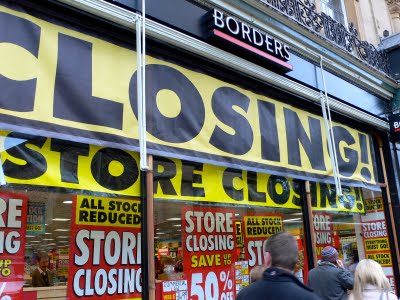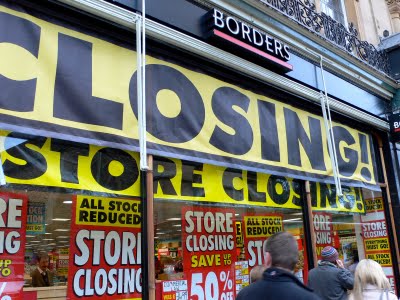Advisors: Are You Amazon or Borders?

4 min Read
What happened to Borders?
Failure to adapt
Once upon a time in 2005 the literary mega-retailer Borders had more than 1,200 stores. As of September, they’ve disappeared in a poof.
Borders was founded in 1971 by Tom and Louis Borders, University of Michigan graduates who took over an 800-sq foot used bookstore. Publisher Peter Osnos wrote on The Atlantic website that part of their unique offering was that they had developed “an inventory tracking system that, by the standards of the time, was as sophisticated as computers allowed.” Ironically, it was the company’s inability to adapt fast enough to the growth of online commerce that contributed to its downfall.
via The Huffington Post
What happened to Borders is what happens to every business that continues to focus on what customers wanted in the past and fails to adapt to changing demand: they went extinct in a flash, dinosaur-style. Online shopping took off and Borders somehow failed to notice. The financial advice business is having a similar tectonic shift in underlying technology and consumer desire. What are you doing to evolve?
Value erodes by standing still
 Bookstores essentially offer the same value proposition to consumers they did 2 centuries ago. Looking for something to read? Go there and you can pick from their selection, touch and feel the books, stand shoulder to shoulder with other bibliophiles, pay a fair price and even get a coffee in a comfy chair (Ok, that last bit is new). By contrast look at Amazon.com. It catalogs millions of book titles you can pull up in an instant. You can see the books, look inside and read bits of most books. And Amazon also has reader reviews and a recommendation engine based on both your and other peoples purchases. They even have over half a million e-books, many of which are free. Plus you can order lots of other stuff and while not immediate, shipping is very fast.
Bookstores essentially offer the same value proposition to consumers they did 2 centuries ago. Looking for something to read? Go there and you can pick from their selection, touch and feel the books, stand shoulder to shoulder with other bibliophiles, pay a fair price and even get a coffee in a comfy chair (Ok, that last bit is new). By contrast look at Amazon.com. It catalogs millions of book titles you can pull up in an instant. You can see the books, look inside and read bits of most books. And Amazon also has reader reviews and a recommendation engine based on both your and other peoples purchases. They even have over half a million e-books, many of which are free. Plus you can order lots of other stuff and while not immediate, shipping is very fast.
So, while not without their advantages, the basic bookstore value proposition has become pretty weak as these options have sprung up. First you have to go to the bookstore, second, they can’t possibly have anywhere near a complete selection – every bookstore would need to be the size of the library of Congress. Bookstores haven’t changed much. But just by standing still they have become inconvenient and constrained. Sure, you can get that great coffee, a comfy chair and touch the books or even read a little. And that last bit is why most people go to bookstores today – not for the books, but for the experience. While bookstores have evolved a little, what consumers want from them has changed dramatically and that shift has restructured the industry.
Bookstore advisors: you ARE being disrupted.
You see, what clients expect from you is different now and that change will accelerate. What are Bookstore advisors doing that makes them doomed to fail? Nothing. Or better yet, nothing different. They are becoming less valuable to clients simply by doing the same things they always have.
That model? It ain’t gonna last. Why?
- Bookstore-style client service is becoming less interesting by the nanosecond.
- A Prestigious firm name doesn’t mean as much anymore.
- Referrals won’t work if your prospective client Googles your name only to find your cookie-cutter “Advisor” website and inactive social profiles.
- Free consultations suck. Nobody has time for them anymore.
- Advertising sucks harder than free consultations. Inbound marketing is where it’s at.
How can you be the Amazon of financial advisors?
- Have a strong online presence and a good website with an active blog.
- Embrace social media.
- Use the best tools (shameless commercial) available, automate your life and simplify your clients.
- Learn to scale your business effectively.
- Be yourself, be trustworthy.


